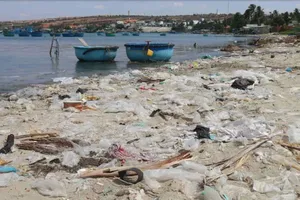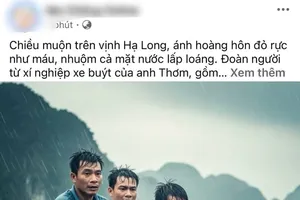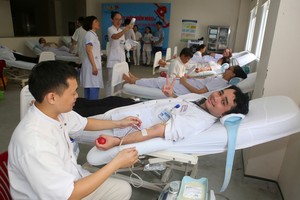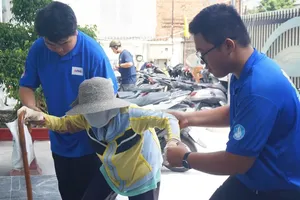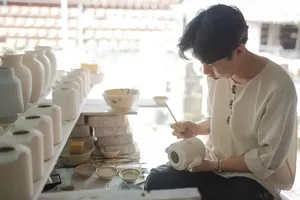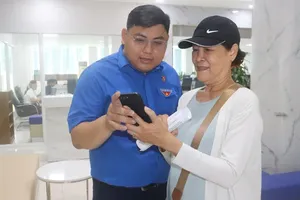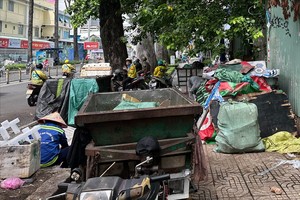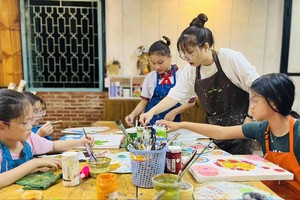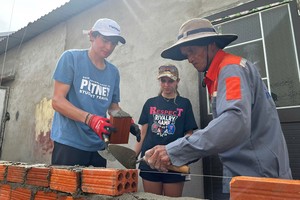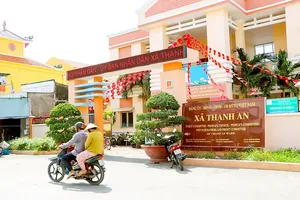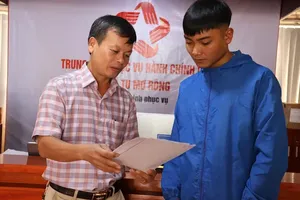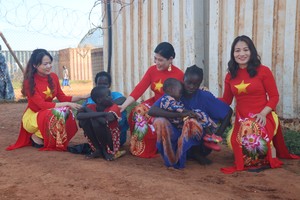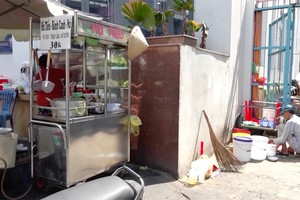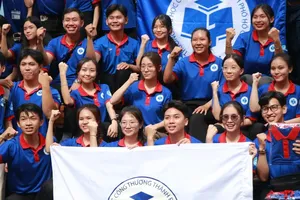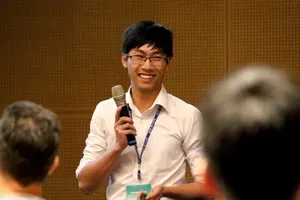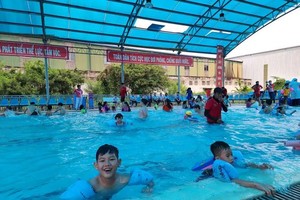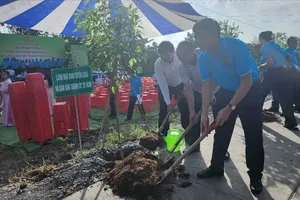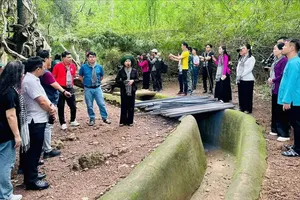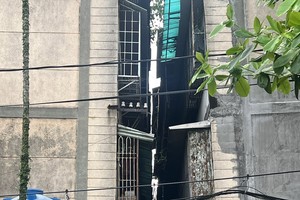Menras André Marcel has an unusual name card.
It carries the picture of a Vietnamese youth with a conical hat, but on closer inspection and enquiry, it turns out that the picture is of the Frenchman himself, taken during his first visit to the country in 1969 on a teaching assignment. It was taken at a fish market in the south central coastal city of Da Nang.

“The picture always reminds me everyday of my responsibility to find out more ways to help poor children in Vietnam,” he said.
Forty years on, a milestone event took place in Marcel’s life. The President of Vietnam stamped his approval on an application granting the Frenchman Vietnamese citizenship in recognition of his long-standing support for Vietnam’s struggles and the work he has done to help the disadvantaged people in this country.
Forty years on, he is still committed and willing to travel to remote areas of the country for any work that involves helping the poor.
Known by his Vietnamese friends as André Quyet, the Frenchman has been leading the Association de Amitié pour le Développement des Echanges Pédagogiques entre la France et le Viet Nam (Association of Friendship for the Development of the Teaching Exchanges between France and Vietnam ) (ADEP) since 2002.
One of his most important initiatives in recent times was the organizing of a special trip to France by 17 former political prisoners who had been incarcerated at the infamous Con Dao prison.
One of them, Pham Van Ba, spoke emotionally about the experience: “We will never forget the encouragement we received both in spirit and in action from our beloved French friends during the harsh days of fighting for independence. And now, once again, our French friends, under ADEP, are helping us fight another enemy - poverty.”
In March 2008, after learning of the “Fresh water for Truong Sa archipelago” program initiated by the Thanh Nien Newspaper, he quickly proposed a feasible project to the organizer – to purchase a fresh water generator from France.
After he received a positive response, he returned to France and implemented the project step by step, including meeting the seller, discussing the machine’s functions and operation, and also negotiating the price. He selected the Power Survivor 160, which produces 25 liters of fresh water per hour using wind and solar energy.
Working with two of his friends, Hong Le Viet Tho, a Vietnamese Japanese, and Nguyen Duc Phuong, editor-in-chief of Le Journal "Solidarité" in France, André Quyet raised a fund among the overseas Vietnamese community and other French citizens. They collected about US$46,400, three times the cost of the machine.
“The important thing is not how much we can raise for the fund but how much love the overseas Vietnamese and foreigners want to send to the local Vietnamese population. Especially, this occasion is for helping residents of Truong Sa.”
Early years
Turning back the hands of time to his past in Saigon, when peace was yet to come, André Quyet recalled an unforgettable day in his life: July 25, 1970. He and his friend Pierre Debris shocked the government of South Vietnam by hanging a flag of National Front for the Liberation of South Vietnam at the Givral café near the Mother Love statue (Saigon Opera House now).
The two young men were immediately imprisoned. From the prison, he sent a letter to France telling his people about the conditions there. His letter was printed in the Le Journal “Humanité”.
On December 31, 1972; André Quyet and Debris, usually known under a Vietnamese name as Ho Tat Thang, were expelled to France.
In August 1977, André Quyet came back to Vietnam at the invitation of the new Vietnamese government.
In 2001, after retiring, he staged a sit-in on the top of the bell tower in Sauvian in cold weather for six days to claim from the French government his prison time in Saigon as part of his employment period. He succeeded.
One year later, he returned to Vietnam. On this third visit back, he founded the ADEP to be a link between schools of both countries, offering various exchange programs for teachers. There are seven French teachers who have come to teach at the Hoang Van Thu School in Da Nang City under this program.
André Quyet has never stopped considering other ways to help the poor people of Vietnam, especially children. Since 2004, he has trained his focus on providing scholarships for poor children. He used his income from a business run with 800 farmer families in Languedoc Loussillon of France to fund the scholarship program two years later.
Besides his work with children’s welfare at the office, he is ever willing to help others who need it. He has been a volunteer guide for the film crew of director Nguyen Ho when filming a movie about three kings from the Nguyen Dynasty.

His Vietnamese name, Ho Cuong Quyet, it is not strange to many Vietnamese people who have known it since his prison days in Saigon. But, it was not an official name till he decided to apply for Vietnamese citizenship in late 2007.
This came out of a conversation with the Deputy Chairman of the HCMC People’s Committee, Nguyen Thanh Tai, who has always spoken of him as a Vietnamese relative. Once he asked: “So why don’t you grant me a Vietnamese citizenship?”. Pat came the answer: “I will be by your side if you apply for it”.
That wish came to pass at special meeting with President Nguyen Minh Triet in Hanoi, when he received the news that his application has been approved. Since Nov 11, 2009, he has been officially declared a Vietnamese citizen.
“Now, if you occasionally meet a Vietnamese with blue eyes, hairy arms not speaking Vietnamese fluently, do not be puzzled. That person is truly Vietnamese,” André quipped.
